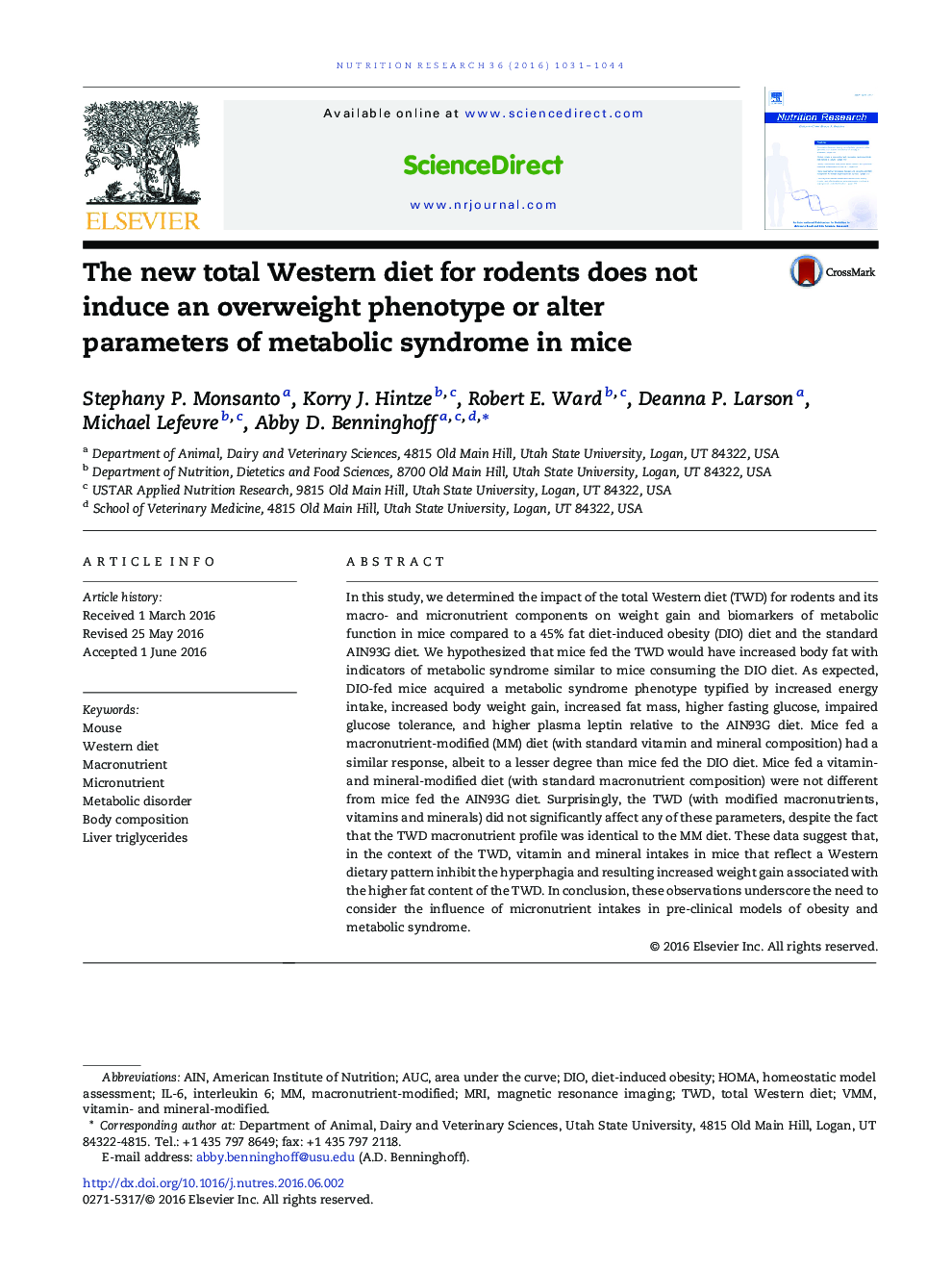| Article ID | Journal | Published Year | Pages | File Type |
|---|---|---|---|---|
| 2808810 | Nutrition Research | 2016 | 14 Pages |
In this study, we determined the impact of the total Western diet (TWD) for rodents and its macro- and micronutrient components on weight gain and biomarkers of metabolic function in mice compared to a 45% fat diet-induced obesity (DIO) diet and the standard AIN93G diet. We hypothesized that mice fed the TWD would have increased body fat with indicators of metabolic syndrome similar to mice consuming the DIO diet. As expected, DIO-fed mice acquired a metabolic syndrome phenotype typified by increased energy intake, increased body weight gain, increased fat mass, higher fasting glucose, impaired glucose tolerance, and higher plasma leptin relative to the AIN93G diet. Mice fed a macronutrient-modified (MM) diet (with standard vitamin and mineral composition) had a similar response, albeit to a lesser degree than mice fed the DIO diet. Mice fed a vitamin- and mineral-modified diet (with standard macronutrient composition) were not different from mice fed the AIN93G diet. Surprisingly, the TWD (with modified macronutrients, vitamins and minerals) did not significantly affect any of these parameters, despite the fact that the TWD macronutrient profile was identical to the MM diet. These data suggest that, in the context of the TWD, vitamin and mineral intakes in mice that reflect a Western dietary pattern inhibit the hyperphagia and resulting increased weight gain associated with the higher fat content of the TWD. In conclusion, these observations underscore the need to consider the influence of micronutrient intakes in pre-clinical models of obesity and metabolic syndrome.
